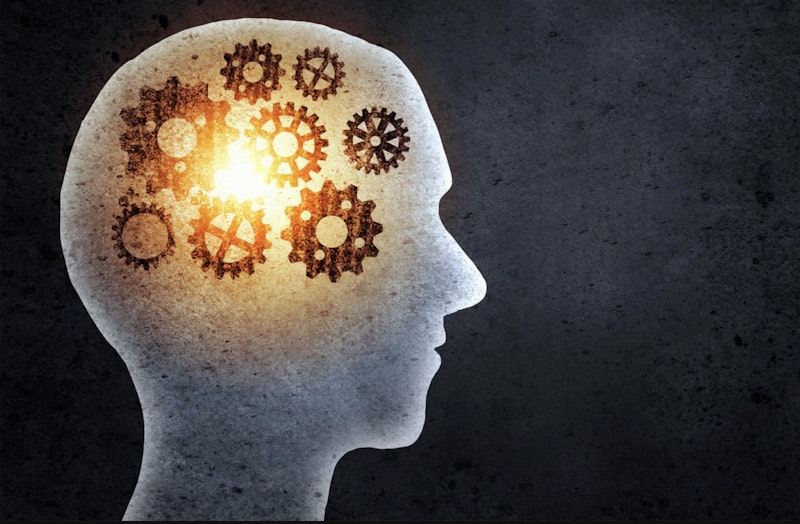Rarely would I suggest that an entire science take a break or hiatus. I might not like what geologists are doing (who does?), but I'll defend their right to do it, because geology is definitely about something. But I urge the National Academy of Sciences to suspend psychology, until such time as it’s also definitely about something.
In a previous article, I argued that psychology has no coherent concept of a “disorder,” and that the American Psychological Association's guide to diagnosis, the DSM-5, is a wreck of vague, overlapping quasi-categories. And yet the state of people's misery turns on its diagnoses. One of the many embarrassing things about the DSM is that it describes a variety of psychological conditions as neurological disorders, while not, in the diagnostic criteria, referring to neurology at all, and while deploying a characterization of the disorders that’s completely incompatible with the idea that they’re neurological.
Even some of psychologists, in their hearts, see some of the problems. I was surprised, last week, by a New York Times column by Cambridge neuropsychologist Huw Green. Writing about the distinction between mental illness and normal human misery, Green says that "pinning down the broader tensions in these disputes can help explain what we’re really arguing about." That is, it can help us figure out what a mental or emotional disorder is. "The hope appears to be that, with enough care, we could land on a successful definition of mental disorder, the correct psychotherapeutic protocol or set of guidelines for prescribing. This hope is misguided."
That's a remarkable set of sentences. Suppose that most other psychologists came to agree with Green that, no matter how much care psychologists take, they will never successfully define “mental disorder” or develop correct therapeutic protocols or guidelines for prescribing the substances they’re currently prescribing to everyone, including millions of children. At that point, Green is directly saying, the basic point of psychology, the reasons for which and the ways in whichpsychologists and psychiatrists do whatever they do is "misguided." I find it refreshing to hear a psychologist address the devastating fundamental problems. If he's right, though, you’ll have got to stop what you’re doing immediately, yes? You might be harming people without understanding how or why you're doing so.
Green has a fairly concrete suggestion, and a fairly plausible idea for starting on a definition of mental disorder, one that’s unusual coming from a professor with “neuro” in his job description. Mental disorders are social disorders, he writes. We don't diagnose people as mentally ill because we see that their brains are messed up; often, they don’t appear so. We regard people as mentally ill when their behavior or their expression becomes "incomprehensible" in their own social world, Green says. Psychological disorders are in this sense relational, not intrinsic, and hence don’t have to be identical or correlate to neurological states. That's good, because they don't and can't. Also, this does at least acknowledge that psychology's basic functions have a lot to do with social convention and control.
ADHD can’t, as defined in the DSM, be a neurological condition. Even some "neuros" see this, evidently, and I appreciate that. "ADHD" was coined as a description of school behavior problems. That is what we’re prescribing Adderall for. If Adderall is an effective medication for school behavior problems, then Green-style psychology says we should prescribe it. The neurology was never either here nor there, or was just a pseudo-scientific scrim over the real subject matter.
I also think it's true that any science in which there is this degree of fundamental obscurity—in which even the top practitioners can’t agree on what sort of phenomena they’re observing—just can’t keep going as though things are alright. It's stunning that after a century and more of scientific psychology, some of its practitioners think they're treating neurological disorders and some think they are describing social situations. Treating someone's brain and treating someone's social situation are entirely different activities requiring entirely different skills.
But Green's approach is more plausible that the DSM's. Psychology’s about social recognition, social control and social suffering. If you think it's about neurology, you're going to have to do much better in showing that it is and how it is.
But the social definition of “mental disorder” has its own potentially overwhelming problems. Green comes very close in that piece to equating mental illness with non-conformity, and to arguing that the purpose of psychology is social normalization, or curtailing individual differences and eccentricities. The Soviet Union defined political dissent as a mental disorder (and many people at least purport to regard their political opponents as mentally ill). That's a pretty easy conclusion to draw if you’re defining disorders in terms of social incomprehensibility. I don’t understand how people vote for Trump, for example. It's incomprehensible. On a decent day, I don't think that makes them mentally ill. We just disagree.
Treating non-conformism as a disease has also been central to the discreditable history of psychology. But it's not as baldly ridiculous as the "neuro-developmental disorder" approach.
I'm assigning readers five years of withering self-reflection, maybe in a camp with logicians as guards. In these "facilities," despite psychologists' terrible confusions, they’ll be humanely treated and their discipline nursed toward intelligibility. During the period that your science is suspended, we don’t want to hear from you at all. When you come back, we expect you to have some notion of what the subject matter of your discipline is. Then we can start to think about directions for research.
And as you head off to re-ed camp, I want to say that I'm sorry this is so hard! You might not see it now, but it will be good for you in the long run.
—Follow Crispin Sartwell on Twitter: @CrispinSartwell

